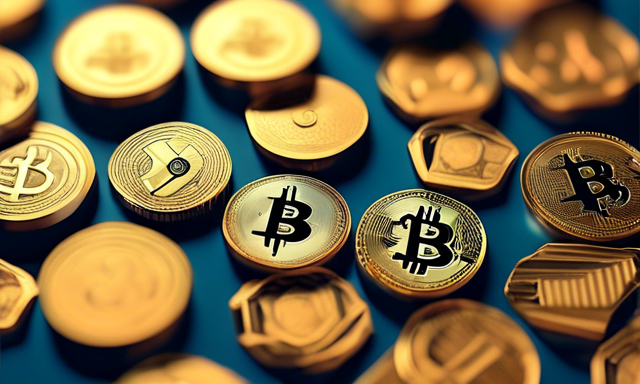Crypto Security Best Practices: How to Protect Your Digital Currency
Welcome to the world of cryptocurrencies! As you begin your journey into this exciting and innovative realm, it’s essential to prioritize your digital currency’s security. With increasing adoption and popularity, cryptocurrencies have become lucrative targets for hackers and scammers. By following these proven best practices, you can safeguard your hard-earned investments and ensure a worry-free cryptocurrency experience.
1. Choose a Secure Wallet
A cryptocurrency wallet is your digital vault, where you store and manage your digital assets. When selecting a wallet, opt for one that offers robust security features, such as two-factor authentication, encryption, and multi-signature technology. Hardware wallets, like Ledger or Trezor, provide an extra layer of protection by storing your private keys offline, away from potential cyber threats.
2. Keep Your Software Updated
Regularly updating your cryptocurrency software is vital. Software developers often release security patches and bug fixes to counter new threats. By keeping your software up to date, you ensure that you’re protected against the latest vulnerabilities and exploits.
3. Enable Two-Factor Authentication (2FA)
Two-factor authentication adds an extra level of security to your cryptocurrency accounts. By requiring a second authentication step, such as a unique code sent to your mobile device, you can prevent unauthorized access to your accounts even if your password is compromised. Enable 2FA wherever possible to safeguard your digital funds.
4. Be Wary of Phishing Attempts
Phishing attacks remain one of the most common methods used by cybercriminals to steal cryptocurrency. Always exercise caution when receiving unsolicited messages or clicking on unfamiliar links. Verify URLs and email senders before submitting any personal information or passwords. Legitimate cryptocurrency platforms will never ask you to provide sensitive information through email or social media.
5. Use Strong, Unique Passwords
Creating strong and unique passwords is crucial to protecting your digital currency. Avoid using easily guessable sequences such as “123456” or “password.” Instead, utilize a combination of uppercase and lowercase letters, numbers, and special characters. Furthermore, avoid reusing passwords across multiple platforms. Consider using a password manager to securely store your credentials.
6. Educate Yourself
Staying informed about the latest trends, scams, and security best practices in the cryptocurrency space is paramount. Regularly follow reputable cryptocurrency news sources and forums to keep yourself updated. By staying informed, you’ll be better equipped to identify and avoid potential threats.
7. Use Secure Networks
Avoid accessing your cryptocurrency accounts or making transactions using public Wi-Fi networks. These networks are often unsecured, making it easier for hackers to intercept your data. Instead, connect to trusted and encrypted networks to ensure the safety of your digital assets.
8. Enable Transaction Confirmations
Ensure that your cryptocurrency wallet requires confirmation for any outgoing transactions. This feature adds an extra layer of security by giving you a final chance to verify and authorize transactions. By enabling this feature, you can prevent unauthorized transfers and potential losses.
9. Be Cautious of Third-Party Services
While cryptocurrency exchanges and other third-party services can be convenient, always exercise caution when using them. Choose reputable and well-established platforms that prioritize security. Research and read user reviews to ensure the service has a proven track record of protecting its users’ funds.
Frequently Asked Questions (FAQs)
Q: Can I recover my funds if my wallet gets compromised or lost?
A: If you’ve backed up your wallet and stored the recovery phrase safely, you’ll be able to restore your wallet on a new device. This emphasizes the importance of regularly backing up your wallet and storing the recovery phrase securely.
Q: Is it safe to invest in new and lesser-known cryptocurrencies?
A: While investing in new cryptocurrencies can be tempting, it’s essential to thoroughly research them before making any investments. Look for transparent development teams, active communities, and listed audits to ensure their legitimacy.
Q: Are hardware wallets the only secure option for storing my digital currency?
A: While hardware wallets provide an excellent level of security, software wallets and mobile wallets with proper security features can also be secure options. As long as you follow best practices and safeguard your private keys, software wallets can provide adequate protection for your digital currency.
By following these crypto security best practices, you can minimize the risks associated with digital currency investments. Remember, protecting your assets is a continuous effort, and staying vigilant is key. Stay informed, use common sense, and prioritize security to enjoy a seamless and secure cryptocurrency experience.





 By
By
 By
By

 By
By

 By
By